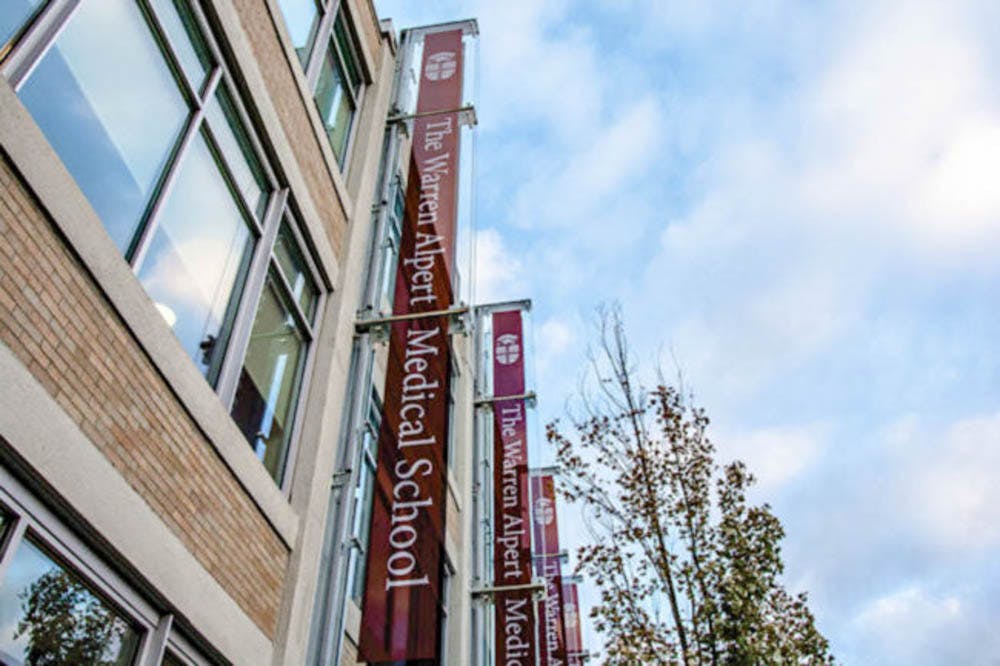After finding that medical students receive an average of five hours of education on the health care needs of the LGBTQ+ community, medical schools across the country have received questions on how to improve their curriculums to promote LGBTQ+ inclusive healthcare, according to a 2011 Stanford Medical School study. At the Alpert Medical School, faculty have introduced opportunities to train students in caring for LGBTQ+ patients through the curriculum and an optional scholarly concentration in LGBTQ Healthcare and Advocacy.
Over the last few years, the office of medical education at the Med School has looked “at our curriculum for various opportunities to ensure there are not misrepresentations (or) incorrect use(s) of … race, gender identity, sexual orientation,” said Steven Rougas, director of the doctoring program at the Med School.
To that end, medical school administrators have worked with “lecturers to identify things that are incorrect or have been historically underrepresented in medicine,” Rougas said.
To educate students on the unique medical issues facing the LGBTQ+ community, the Med School began requiring students to attend a three-hour workshop this year, Rougas said. The workshop, called the Rainbow Caduceus, allows students to learn about the barriers to care that members of the LGBTQ+ community face in addition to proper terminology. A small group discussion and a larger group Q&A session follow the lecture to encourage students to exchange ideas about case studies, he said.
In addition, this year the Med School required second-year students to attend a training session focused specifically on the “barriers that transgender patients may encounter and how our students can be advocates to ensure appropriate quality of patient care,” Rougas said.
Previously, Spectrum — a medical student-led, LGBTQ+ advocacy and affinity group — coordinated the Rainbow Caduceus workshop as “an optional evening training to provide the basics around what it would look like to provide LGBTQ inclusive care,” said Becca Raymond-Kolker MD ’21, a co-leader of Spectrum. “We took that curriculum … and got it integrated into the first-year doctoring course” after the University made the workshop mandatory, she added.
The doctoring course is the “required clinical skills training curriculum for medical students, ” Rougas said. While the Med School used to offer an introductory course on LGBTQ+ patient care to students during their second year, the Med School found that students benefited more from learning about the subject during their first year.
Students begin working in clinics within the first two months of their education, so introducing core topics related to LGBTQ+ health care during the first year allows students “to be able to navigate these patient encounters when they’re in their early clinical experience,” Rougas said.
By integrating LGBTQ+ focused workshops into the general doctoring curriculum, all students have the opportunity to gain knowledge and build skills in LGBTQ+ health care, said Michelle Forcier, professor of pediatrics and director of the LGBTQ scholarly concentration. “It’s not just for people who have an interest, but it’s a part of everybody’s medical education,” she added.
In addition to the doctoring curriculum, medical students have the opportunity to take extracurricular courses in LGBTQ+ health care and advocacy as a part of a scholarly concentration, The Herald previously reported. Through this program, students take elective courses, attend a series of specialized lectures and create a project related to their studies.
Though the Med School has come far in integrating LGBTQ+ conscious care into its medical curriculum, there is still work to be done, Forcier said. “There are areas in the curriculum where LGBTQ+ health(care) could be more streamlined and integrated, but that’s a work in progress,” she added.
“Integrating inclusive approaches across the curriculum should be continued,” Raymond-Kolker said. “There is potential for the scholarly concentration to expand.”
Despite the work left to do, the Med School has progressed in LGBTQ+ centered education, Raymond-Kolker said. “There’s a lot more (LGBTQ+ education) now than there has been in the past and it’s definitely something that Alpert Medical School is actively working on,” she said. “Especially in the doctoring program, they’re being really mindful of how to make it more LGBTQ inclusive, not only through the Rainbow Caduceus training, but also” when teaching how to record “sexual histories, … making sure that you’re asking inclusive questions (and) not assuming things about peoples’ sex lives,” she added.
As the country continues to examine the relationship between medical care providers and LGBTQ+ patients, student movements are leading the way in improving care for these groups, Raymond-Kolker said. “That is challenging because being a medical student is … overwhelming. (But) it’s exciting to see, and I hope that … as my generation of medical students graduates into being physicians, we see there’s a transformation in making sure the (LGBTQ+) community gets better care across the board,” she added.





